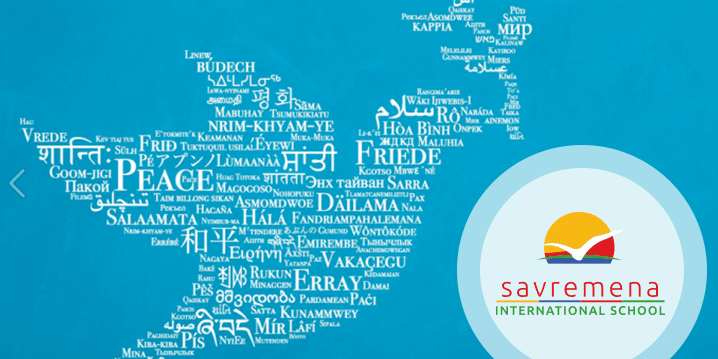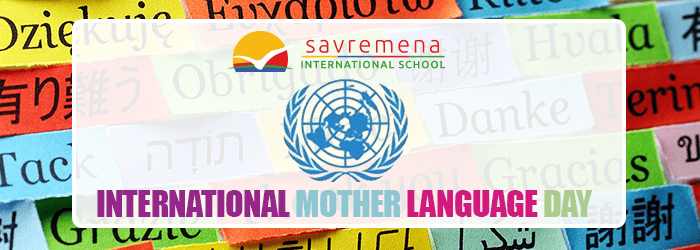On Monday, 22 February, the students of Savremena International School used mini-debates and exercises in search for answers to relevant questions pertaining to the importance and preservation of one’s mother language. This was their contribution to marking the International Mother Language Day, celebrated each 21 February since 2000.
This day, important for every nation, was established by UNESCO, at the initiative of Bangladesh, in order to raise worldwide awareness of the importance of one’s native language.
The Importance of the Mother Tongue
Savremena International School’s students used their Serbian classes to discuss the importance of cultivating and preserving their first language, since it is not only a symbol of their national identity, but also the identity of each individual.
Through discussions with their teacher, the students noted the increasingly frequent occurrence of literal translations and adoption of foreign words and phrases, primarily from English; a trend that compromises the linguistic heritage and melodiousness of the mother language. The students also noticed that technological advancement, although it rendered communication and cultural exchange simpler, has resulted in an intensive influx of foreign words.
A workshop full of laughter
To see what it is like to try to make a conscious contribution to preserving the Serbian language, the students participated in an interesting exercise: they tried to find the most adequate Serbian word for one of the most popular foreign terms among young people: selfie.
The results were original and fun; the most interesting solutions included: svojko, sebić, samofotko, jaslik, egoslik, ekranko. Although unsure how capable of taking hold in the actual language some of these solutions are, the students will certainly aim for a different outcome.
The importance of preserving the native language
At the end of the debate, Savremena’s students came to the conclusion that the Serbian language is not the only one that needs to resist the powerful influence of technological innovations and other languages alike.
They emphasised that cultivating the mother tongue does not outrule the possibility of learning other languages successfully. On the contrary – a good command of the mother tongue facilitates the learning of all other languages, and that is why it is important to preserve it.




